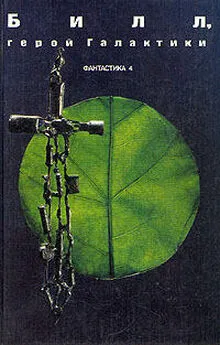Анетт Асп - Круто! Как подсознательное стремление выделиться правит экономикой и формирует облик нашего мира
- Название:Круто! Как подсознательное стремление выделиться правит экономикой и формирует облик нашего мира
- Автор:
- Жанр:
- Издательство:Альпина Паблишер
- Год:2016
- Город:Москва
- ISBN:978-5-9614-4152-9
- Рейтинг:
- Избранное:Добавить в избранное
-
Отзывы:
-
Ваша оценка:
Анетт Асп - Круто! Как подсознательное стремление выделиться правит экономикой и формирует облик нашего мира краткое содержание
Авторы этой книги провели глобальное исследование, обобщили новейшие данные в области нейронауки, экономики, эволюционной биологии и выяснили, почему мы просто обречены покупать и почему стремимся выглядеть лучше остальных. По мнению авторов, невозможно остаться за пределами этого мира товаров, символов и сигналов. Даже те, кто называет себя «антипотребителями», в конечном итоге оказываются просто альтернативными потребителями.
Что происходит у нас в голове, когда мы оказываемся в магазине? Какие три силы борются в нас при выборе того или иного товара? Как «крутое» потребление стало главной движущей силой экономики и как оно влияет на мир? Об этом рассказывают профессор философии и когнитивной науки Стивен Кварц и политолог, специалист в области PR Анетт Асп.
Круто! Как подсознательное стремление выделиться правит экономикой и формирует облик нашего мира - читать онлайн бесплатно ознакомительный отрывок
Интервал:
Закладка:
240
Wolff et al., 2010, “Subjective social status.”
241
Harris, Angel L. 2010. “The economic and educational state of black Americans in the 21st century: Should we be optimistic or concerned?” The Review of Black Political Economy 37:241–52; Wolff et al., 2010, “Subjective social status.”
242
Frank, R. H., 1999, Luxury Fever .
243
См., к примеру: Bagwell, Laurie Simon, and B. Douglas Bernheim. 1996. “Veblen effects in a theory of conspicuous consumption.” American Economic Review , 86:349–73; Hopkins, E., and T. Kornienko. 2004. “Running to keep in the same place: Consumer choice as a game of status.” American Economic Review 94:1085–1107; Becker, G. S., K. M. Murphy, and I. Werning. 2005. “The equilibrium distribution of income and the market for status.” Journal of Political Economy 113:282–310; Heffetz, Ori. 2012. “Who sees what? Demographics and the visibility of consumer expenditures.” Journal of Economic Psychology 33:801–18.
244
Chernow, Ron. 1998. Titan: The Life of John D. Rockefeller, Sr. New York: Random House.
245
Asabere, Paul, and Forrest Huffman. 2013. “The impact of relative size on home values.” The Appraisal Journal , p. 24.
246
Anderson, Cameron, and Gavin J. Kilduff. 2009. “The pursuit of status in social groups.” Current Directions in Psychological Science 18:295–98.
247
Hall, Jonathan, and Hongyi Li. 2012. “Why Isn’t Conspicuous Consumption More Conspicuous?” no. 1899, www.hongyi.li/papers/Conspicuous.pdf; Lavie, Moshik, “Show Me the Money: Status, Cultural Capital, and Conspicuous Consumption.” (October 1, 2008). Available at http://ssrn.com/abstract=1328292.
248
Huang, Shiying. 2013. “Bordeaux’s Firsts Too Expensive for China.” The Drinks Business . www.thedrinksbusiness.com/2013/07/bordeauxs-firsts-too-expensive-for-china/.
249
Smith, E. A., et al., 2010, “Production systems, inheritance, and inequality.”
250
Одной из целей Макса Вебера было отделение экономического класса от статуса. Во многих современных экономических дискуссиях такое разделение утеряно и класс автоматически приравнивается к статусу. На самом же деле это не так, что является одной из причин того, что даже при выраженной экономической стратификации в обществе может не быть заметного разделения его членов по статусу. См.: Chan, T. W., and J. H. Goldthorpe. 2007. “Class and status: The conceptual distinction and its empirical relevance.” American Sociological Review 72:512–32.
251
Anderson, C., M. W. Kraus, A. D. Galinsky, and D. Keltner. 2012. “The localladder effect: Social status and subjective well-being.” Psychological Science 23:764–71.
252
Wayland, Michael. 2012. “How crossovers, soccer moms ‘killed’ minivans.” MLive , March 27–29. www.mlive.com/auto/index.ssf/2012/03/how_crossovers_soccer_moms_kil.html.
253
Bunkley, Nick. 2011. “Mocked as Uncool, the Minivan Rises Again.” The New York Times , January 3. www.nytimes.com/2011/01/04/business/04minivan.html?pagewanted=all&_r=0.
254
Tversky, A., and E. Shafir. 1992. “Choice under conflict: The dynamics of deferred decision.” Psychological Science 3:358–61.
255
Tversky and Shafir, 1992, “Choice under conflict.”
256
Sweeny, Kate, and Kathleen D. Vohs. 2012. “On near misses and completed tasks: The nature of relief.” Psychological Science 23:464–68.
257
Kohls, Gregor, et al. 2013. “The nucleus accumbens is involved in both the pursuit of social reward and the avoidance of social punishment.” Neuropsychologia 51:2062–69.
258
White, Katherine, and Darren W. Dahl. 2007. “Are all out-groups created equal? Consumer identity and dissociative infl uence.” Journal of Consumer Research 34:525–36.
259
См., например: Goodman, Douglas J., and Mirelle Cohen. 2003. Consumer Culture: A Reference Handbook . Santa Barbara, CA: ABC–CLIO.
260
Escalas, J. E., and J. R. Bettman. 2005. “Self-construal, reference groups, and brand meaning.” Journal of Consumer Research 32:378–89.
261
Bunkley, 2011, “Mocked as Uncool, the Minivan… ”
262
Baskin, Jonathan S. 2013. “Harley-Davidson Will Be a Case Study in Social Branding.” Forbes, July 12. http://www.forbes.com/sites/jonathansalembaskin/2013/07/12/harley-davidson-will-be-a-case-history-in-social-branding/.
263
Cellini, Adelia. 2004. “The Story Behind Apple’s ‘1984’ TV Commercial: Big Brother at 20.” MacWorld 21:18.
264
Точку зрения на идентификационные товары можно найти в: Sunstein, Cass, and Edna Ullmann-Margalit. 2001. “Solidarity Goods.” The Journal of Political Philosophy 9: 129–49.
265
Berger, Jonah A., and Chip Heath. 2007. “Where consumers diverge from others: Identity signaling and product domains.” Journal of Consumer Research 34:121–34. Berger, Jonah, and Chip Heath. 2008. “Who drives divergence? Identity signaling, outgroup dissimilarity, and the abandonment of cultural tastes.” Journal of Personality and Social Psychology 95:593–607.
266
“There Are So Many Kinds of Yoga. This Chart Can Help.” 2013. Huffpost Healthy Living , September 16. www.huffingtonpost.com/2013/09/16/yoga-chart-infographic_n_3915189.html.
267
Gay, Peter. 2008. Modernism: The Lure of Heresy . New York: W. W. Norton.
268
Мейлер Н. Белый негр // Вопросы философии, № 9, 1992.
269
Mailer, “White Negro.”
270
Freud, Sigmund. (1908). “ ‘Civilized’ sexual morality and modern ner vous illness.” In J. Strachey, ed. The Standard Edition of the Complete Psychological Works of Sigmund Freud , vol. 9. London: Hogarth Press, pp. 181–204.
271
О фрейдовской теории сексуальности см.: Murphy, T. F. 1983. “Freud reconsidered: Bisexuality, homosexuality, and moral judgement.” Journal of Homosexuality 9:65–77.
272
Мейлер, «Белый негр».
273
Lindner, Robert. 1956. Must You Conform? New York: Rinehart.
274
Halmos, Paul. 1957. Towards a Measure of Man: The Frontiers of Normal Adjustment. New York: Routledge & Kegan Paul, p. 90.
275
Lindner, Robert. 1954. “Rebels or Psychopaths?” Time , December 6.
276
Lindner, 1956, Must You Conform?
277
Black, Donald W. 2013. Bad Boys, Bad Men: Confronting Antisocial Personality Disorder (Sociopathy) . New York: Oxford University Press.
278
Klabbers, G., et al., 2009. “Measuring rebelliousness and predicting health behaviour and outcomes: An investigation of the construct validity of the social reactivity scale.” Journal of Health Psychology 14:771–79.
279
Majors, Richard, and Janet Mancini Billson. 1992. Cool Pose: The Dilemmas of Black Manhood in America . New York: Jossey-Bass.
280
Stearns, Peter N. 1994. American Cool: Constructing a Twentieth-Century Emotional Style. New York: NYU Press.
281
Webster, Richard. 1995. Why Freud Was Wrong: Sin, Science, and Psychoanalysis . New York: Basic Books.
282
Wylie, Philip. 1942. Generation of Vipers. New York: Pocket Books (1955 ed.), p. 185.
283
Цитата из Грэма приводится в: Whitfield, Stephen J. The Culture of the Cold War (2nd ed.). Baltimore, MD: Johns Hopkins University Press, 1996.
284
Schlesinger, Arthur. 2008. The Politics of Hope and The Bitter Heritage: American Liberalism in the 1960s . Princeton, NJ: Princeton University Press, p. 301.
285
Riesman, David. 1961. The Lonely Crowd . New Haven, CT: Yale University Press.
286
Fraiman, Susan. 2002. Cool Men and the Second Sex . New York: Columbia University Press, p. xv.
287
The Complete Letters of Sigmund Freud to Wilhelm Fliess, 1887–1904 . 1985. Jeffrey Moussaieff Masson, trans. Cambridge, MA: Belknap Press.
288
Garber, Marjorie. 1995. Bisexuality and the Eroticism of Everyday Life . New York: Routledge, p. 186.
289
Jones, Ernest. 1953. The Life and Work of Sigmund Freud , vol. 1. New York: Basic Books, p. 317.
290
Ginsberg, Allen. 1995. Journals Mid-Fifties 1954–1958 . Gordon Ball, ed. New York: HarperCollins.
291
Burroughs, William. The Adding Machine . New York: Grove Press, p. 153.
292
Amburn, E. 1998. Subterranean Kerouac: The Hidden Life of Jack Kerouac . New York: St. Martin’s Press.
293
Jonason, Peter K., N. P. Li, G. D. Webster, and D. P. Schmitt. 2009. “The dark triad: Facilitating a short-term mating strategy in men.” European Journal of Personality 23:5–18.
294
Цитата из Хефнера по книге: Watts, Steven. 2008. Mr. Playboy: Hugh Hefner and the American Dream. Hoboken, NJ: Wiley, p. 134.
295
Amburn, 1998, Subterranean Kerouac ; Bast, William. 2006. Surviving James Dean . New York: Barricade Books.
296
Ehrenreich, Barbara. 1983. The Hearts of Men: American Dreams and the Flight from Commitment . New York: Anchor Books.
297
D’Emilo, John, and Estelle B. Freedman. 1997. Intimate Matters: A History of Sexuality in America . Chicago: University of Chicago Press.
298
Kaplan, Fred. 2009. 1959: The Year Everything Changed . Hoboken, NJ: Wiley.
299
Интервал:
Закладка:










